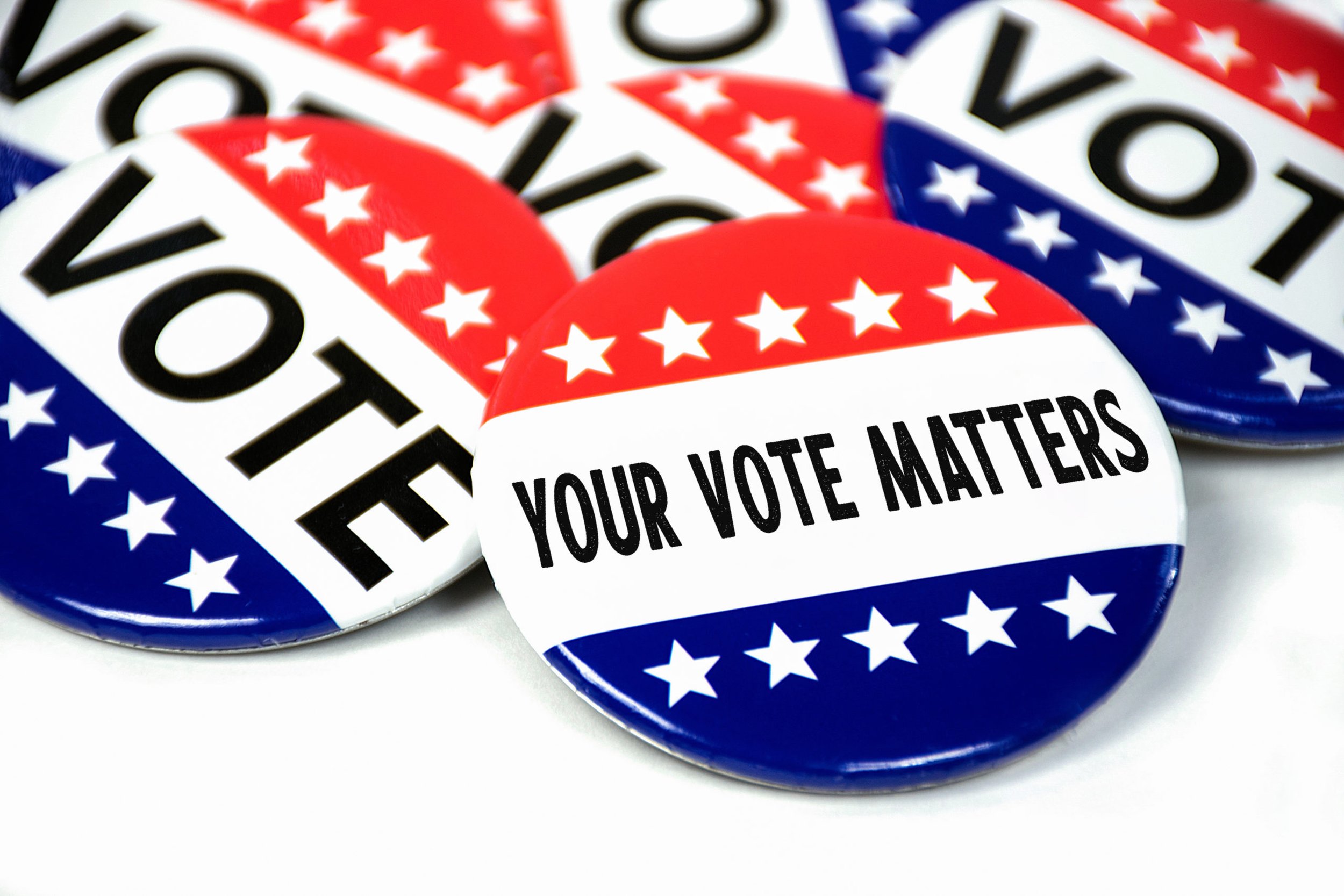
Washington County Executive Offices
Civic engagement is an important part of a functioning democracy. Learn more about the roles of elected officials and how you can engage with the legislative process below.
County Judge
County Judge is the chief executive officer for the county government. This role authorizes and approves the disbursement of all appropriated county funds, operates the system of county roads, and administers ordinances enacted by the quorum court. The County Judge has custody of county property, accepts grants from federal, state, public, and private sources.They also hire county employees except those employed by other elected officials of the county, and preside over the quorum court without a vote, but with the power of veto.
Note: A county judge is different than the nonpartisan judge positions above and can be partisan. The county judge is the CEO of the county.
County Judge: Patrick Deakins (Republican)
Learn more here:
Justice of the Peace
Justices of the Peace serve on the Quorum Court, which is the county's legislative branch. JPs serve two-year terms. They control all spending and revenue for the county. Specific duties include:
Levy taxes as prescribed by law
Appropriate public funds for the expenses of the county in a manner prescribed by ordinance
Preserve the peace and order and secure freedom from dangerous or noxious activities; provided, however, that no act may be declared a felony
For any public purpose, contract, or join with another county, or with any other political subdivision or with the United States
Create, consolidate, separate, revise, or abandon any elected office or offices except during the term thereof; provided, however, that a majority of those voting on the question at a general election have approved said action
Fix the number and compensation of deputies and county employees
Fix the compensation of each county officer with a minimum and maximum to be determined by law
Fill vacancies in elected county offices
Provide for any service or performance of any function relating to county affairs
To exercise other powers, not inconsistent with law, necessary for effective administration of authorized services and functions
The Washington County Qourom Court meets ____. The public is invited to observe and participate in these meetings. The meetings are also live-streamed here.
For information on how to contact your representative, click here.
Learn more here:
Justice of the Peace, District 1
JP Lance C. Johnson (Republican)
Justice of the Peace, District 2
David Wilson (Republican)
Justice of the Peace, District 3
Justice of the Peace Sean Simons (Republican)
Justice of the Peace, District 4
Fred Anderson (Republican)
Justice of the Peace, District 5
Kyle Lyons (Republican)
Justice of the Peace, District 6
Justice of the Peace Lisa Ecke (Republican)
Justice of the Peace, District 7
Charles T Dean (Republican)
Justice of the Peace, District 8
Justice of the Peace Shawndra Washington (Democratic)
Justice of the Peace, District 9
Beth Coger (Democratic)
Justice of the Peace, District 10
Justice of the Peace Robert E. Dennis (Republican)
Justice of the Peace, District 11
Justice of the Peace Suki Lin Highers (Democratic)
Justice of the Peace, District 12
Justice of the Peace Evelyn Rio Stafford (Democratic)
Justice of the Peace, District 13
Justice of the Peace Willie Leming (Republican)
Justice of the Peace, District 14
Gary Ricker (Republican)
Justice of the Peace, District 15
Justice of the Peace Butch Pond (Republican)
County Sheriff
The sheriff is the chief enforcement officer of the courts, conservator of the peace in the county, and has custody of the county jail. As chief enforcement officer of the circuit and chancery courts, the sheriff is charged by the constitution and by statute with:
the execution of summonses
enforcement of judgments, orders, injunctions, garnishments, attachments, and
the making of arrest on warrants issued by the courts.
A second major area of duties surrounds the responsibility of the sheriff in law enforcement that includes:
the preservation of the public peace;
the protection of life and property;
the prevention, detection, and investigation of criminal activity;
the apprehension and confinement of offenders and the recovery of property;
the control of crowds at public events;
the control of vehicular traffic and the investigation of traffic accidents;
and the rendering of services and the protection of property during civil emergencies or natural disasters.
The sheriff has custody of accused felons and some misdemeanors apprehended in the county and is charged with feeding and keeping these accused persons.
County Sheriff:
Jay Cantrell (Republican)
County Assessor
Assesses property values, including real property and personal property, maintain property records, create and maintain parcel maps, provide free property search program for the public, perform various administrative duties related to property valuation.
Assessor Russell Hill (Republican)
County Coroner
Responsible for the investigation of human death cases reported to the coroner under Arkansas law and rendering of rulings as to cause, manner, and time of death. The Lead Deputy Coroner directs and trains Deputy Coroners as directed by the County Coroner.
Coroner Roger W. Morris (Democratic)
Circuit Clerk
The primary duties of the Circuit Clerk office revolve around filing, docketing, attending court, issuing of notices, records management, and reporting to the Administrative Office of the Courts.
Kyle E. Sylvester (Republican)
County Clerk
The County Clerk is the official bookkeeper of the county government. They are responsible for voter registration, as well as absentee and early voting at the Courthouse. The County Clerk issues marriage licenses, DBA certificates, and ministers' certificates of record. They also file and maintain Nurses' and Physicians' credentials and licenses, and keep a record of all fictitious business names in the county. Additionally, they serve as the clerk for the County Court and Circuit Court Probate Division and as secretary to the Equalization Board.
Becky Lewallen (Republican)
County Collector
The Collector's office collects property taxes to help support schools, cities, roads, jails, and county expenses based on millage rates set by local governments and voters. These taxes are about 1% of the value of your home, car, and other items that you may own.
County Collector Angela Wood (Republican)
County Treasurer
Duties of the Treasurer include:
Receipt revenue from local, state and federal sources
Distribute property tax money to schools, cities, rural fire, and county departments
Accurate accounting of all receipts and disbursements
Invest county funds and secure funds held above FDIC limits
Prepare and sign checks for employee payroll and creditors of the county
Balance daily and reconcile monthly bank statements
Project revenue for the annual budget process
Present monthly report to the Quorum Court on the fiscal condition of the county
County Treasurer Bobby Hill (Republican)
Constable
Constables are typically found in rural areas of Arkansas and must live in the townships where they are elected. They serve two year terms and are typically not paid salaries. The primary responsibility of the constable is to the residents of the township and county where he or she serves. The order of law enforcement positions goes: State Police, county sheriff’s departments, township district constables and municipal police departments.
Constable District 1
John R. Buchan (Republican)
Constable District 2
Constable John M. Brooks (Democratic)
Constable District 3
Constable Kyle Woodruff (Republican)
Nonpartisan Judicial General Election Positions
The offices of Justice of the Supreme Court, Judge of the Court of Appeals, Circuit Judge, District Judge, and Prosecuting Attorney are nonpartisan offices in Arkansas. The term nonpartisan is used to describe elections in which the candidates do not run with partisan (i.e. political party) labels.
Supreme Court Justices
The Arkansas Supreme Court is the highest judicial body in the state of Arkansas. This Court generally has only appellate jurisdiction, meaning it typically hears cases that are appealed from trial courts. The Arkansas Supreme Court also has general superintending control over all inferior courts of law and equity. The Arkansas Supreme Court’s jurisdiction includes all appeals involving the interpretation or construction of the state constitution; criminal appeals in which the death penalty or life imprisonment has been imposed; petitions relating to the actions of state, county, or municipal officials or circuit courts; appeals pertaining to election matters; appeals involving attorney or judicial discipline; second or subsequent appeals; and matters required by law to be heard by the court.
Qualifications for Supreme Court Justice include being a licensed attorney for at least eight years immediately preceding the date of assuming office and being elected by the qualified electors of the State to serve eight-year terms.

